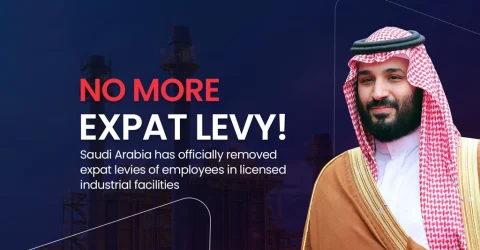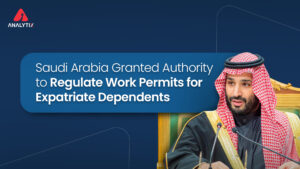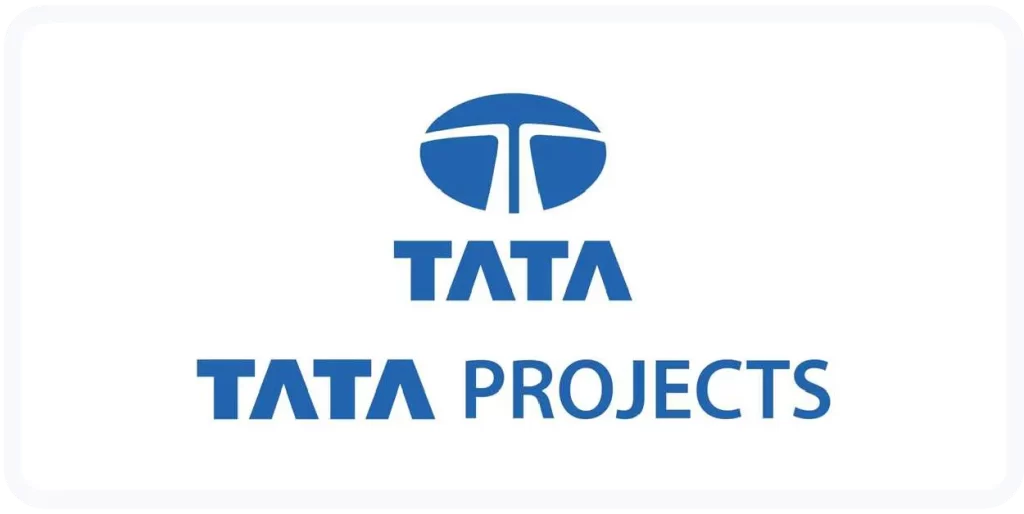Understanding the legal realm of Foreign Investment Law in Saudi Arabia can be a complex task. Well, this is why we, ‘Analytix’, with more than a decade of experience in Saudi Arabia’s business landscape, have come up with the breakdown of what you need to know. This blog will offer you a comprehensive insight into the most important aspects of Saudi foreign investment law.
What is the Foreign Investment Policy of Saudi Arabia?
The Foreign Investment Law of Saudi Arabia reflects a proactive approach of the kingdom towards economic diversification and global integration. This includes several policies to improve the legal landscape of foreign investment in the country through the enforcement of regulatory measures and streamlined processes for promoting strategic growth and offering a range of investment opportunities in Saudi Arabia.
The Foreign Investment law in Saudi Arabia has undergone a significant transformation over the years. It has drawn the attention of the worldwide business community to the kingdom. Saudi Arabia has created a fertile ground for foreign investment by strategically diversifying the economy. The enactment of the Foreign Investment Law in Saudi Arabia alongside various accompanying regulations serves as a symbol of the ever-evolving business landscape of the Kingdom.
Under the framework of Foreign Investment Law in Saudi Arabia, foreign investors are required to obtain an investment license from the MISA (Ministry of Investment Saudi Arabia) with another specific type of license contingent upon the nature of the business venture. The process of application has now been digitized which enables the investors to complete the process of application online through the Ministry’s website. This digital transformation has helped to increase the flow of investments across a spectrum of business sectors including but not limited to construction, wholesale and retail, manufacturing, hospitality, and technology.
Furthermore, the kingdom is committed to the prevention of unlawful practices in its investment sphere. Legislations such as the Anti-Concealment Law which came into effect in 2004 aim to combat illicit activities through commercial concealment arrangements. The proposed reforms under the policy seek to refine the legal framework surrounding the Foreign Investment Law in Saudi Arabia geared towards fostering fairness and impartiality between local and foreign investors.
Saudi Arabia is broadening its horizons and pivoting towards becoming the global business hub, opening up limitless opportunities for foreign investors and businesses.
Key Features of the Foreign Investment Law in Saudi Arabia
1. Overview
- The ‘CEFI’, ministerial committee established by the Council of Ministers oversees all foreign investments to ensure that they all align with the national security interests and public policy objectives of Saudi Arabia.
- It evaluates the direct and indirect impacts of foreign investments, considering important factors such as economic development, job creation, technological growth, and sustainability.
- The ‘CEFI’ issues certain policies, guidelines, and penalties to regulate foreign investments to maintain a fine balance between attracting foreign capital and safeguarding national security.
2. Laws and Regulations
- MISA (Ministry of Investment Saudi Arabia) provides a legal framework for foreign investors to operate in the kingdom.
- Various laws complementing the Foreign Investment Law in Saudi Arabia, including the Companies Law, Labour Law, Tax Law, Bankruptcy Law, and Competition Law ensure a conducive business environment.
- There are some Sector-specific regulations to govern the activities of foreign investors, to ensure compliance with industry standards, and to promote fair competition.
3. Scope and Screening
- The CEFI identifies the strategic sectors of the economy such as energy, infrastructure, and telecommunications to ensure thorough scrutiny to safeguard national security.
- It assesses the foreign ownership, influence, or control over entities operating in sensitive industries utilizing the screening mechanism to detect potential risks.
- The scope of screening extends to mergers, acquisitions, and joint ventures involving foreign parties or investors to ensure transparency and accountability in business transactions.
4. Voluntary Screening
- In addition to statutory requirements, the CEFI promotes voluntary screening of investments in crucial business sectors to mitigate potential risks.
- CEFI guides foreign investors and helps them gain an understanding of prohibited activities, compliance procedures, and reporting obligations to increase transparency and regulatory compliance.
- The committee proactively engages with foreign investors intending to foster a cooperative and friendly relationship for sustainable growth and mutual benefits.
5. Procedures and Timelines
- Applications of foreign investments undergo a well-organized process within 30 days and enable the investors to accelerate their entry into the Saudi Market.
- The Foreign Investment Law in Saudi Arabia has set clear guidelines that outline the requirements for documentation, submission procedures, and criteria for evaluation of investment proposals to ensure efficiency and accountability.
- The appeal mechanism allows aggrieved investors to question and challenge adverse decisions. This in turn promotes fairness in procedures and the confidence of investors in the regulatory framework.
6. Prohibition and Mitigation Measures
- MISA enforces strict criteria to assess and measure the suitability of foreign investors. The factors considered include financial integrity, legal compliance, and the reputation of investors.
- Prohibited activities include those contrary to ‘Shariah Law’ or posing potential risks to national security. They are strictly monitored to discourage non-compliance.
- There are several Mitigation measures including risk assessments, due diligence, and regulatory compliance programs. It empowers foreign investors to understand the regulatory realm of the Foreign Investment Law in Saudi Arabia effectively and mitigate potential risks adhering to legality and reputation.
How can Analytix Help You Invest in Saudi as a Foreigner?
Analytix is your on-ground partner in Saudi Arabia as one of the leading consultancy firms in the kingdom specializing in international business setup support. With years of experience in providing valuable assistance to businesses entering the Saudi Market and a team of highly experienced business experts, Analytix will help you establish, incorporate, and grow your business in the country. In addition to business incorporation, Analytix also provides business services including accounting and bookkeeping, tax and auditing, GRO and PRO services, and many more.
Conclusion
We hope that you found this blog on Foreign Investment Law in Saudi Arabia, informative and engaging.
Understanding and abiding by foreign investment policies can be crucial for anyone looking forward to investment opportunities in the Kingdom. You can explore the endless business possibilities offered by Saudi Arabia with the right approach and understanding of the foreign investment law.
If you have any questions on the topic discussed here or if there’s anything else you’d like us to cover, please let us know in the comments below.
We look forward to your valuable feedback. Happy reading!!
Frequently Asked Questions [FAQ]
What is the foreign ownership limit in Saudi Arabia?
In Saudi Arabia, foreign investors can now own 100 % of their investments in the country across most business sectors. Previously, a foreign investor was allowed to own 75% of the share capital along with a shareholder from the kingdom partnering with at least 25% of the share capital. However, the reforms have changed and they now allow foreign investors to establish solely owned business entities without the need for a Saudi shareholder.

























